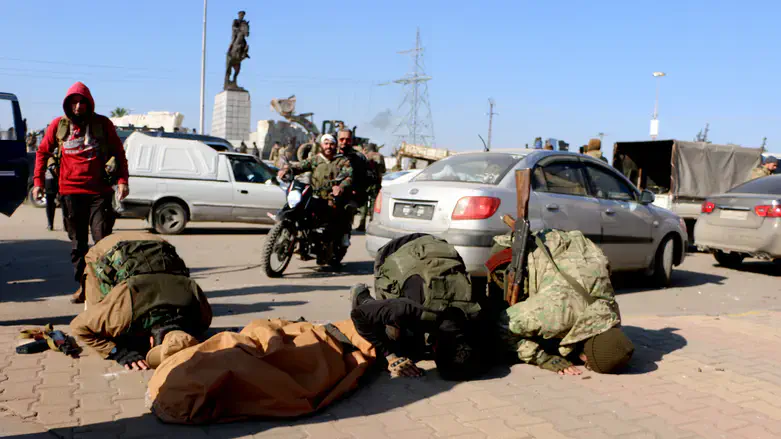
The White House is focusing on the next steps in Syria, which include engaging with local groups, consulting regional leaders, and continuing efforts to combat the Islamic State (ISIS), a senior administration official said on Sunday, according to CNN.
The official explained that the US will be “engaging with the broad spectrum of Syrian society, opposition groups, groups on the ground in Syria, exile groups. We have broad contacts, and we built up over the course of over the past decade and even beyond.”
The aim of this engagement is “to establish and help wherever we can a transition away from the Assad regime towards an independent, sovereign Syria that can serve the interests of all Syrians under the rule of law.”
One of the key factions in the recent toppling of the regime was Hayat Tahrir al-Sham (HTS), a coalition designated by the US as a foreign terrorist organization in 2018. The official noted that the US is “watching very closely” to see whether statements by rebel leaders “are translated into actions on the ground.”
Abu Mohammad al-Jolani, the leader of HTS, gave his first public remarks since the regime's fall, declaring victory for the “entire Islamic nation” and describing the coup as “a new chapter in the history of the region.”
He stated that the armed opposition plans to form a government characterized by institutions and “a council chosen by the people.”
Jolani was initially part of a group that was Al-Qaeda's Syria affiliate, the Al-Nusra Front. HTS later broke off from Al-Nusra Front. Jolani was also critical of ISIS, describing its self-proclaimed caliphate in parts of Syria and Iraq as "illegitimate".
The White House official on Sunday also emphasized its focus on the issue of any remaining chemical weapons in Syria, with the administration taking “prudent measures” to address them.
The senior official described the matter as “a top-tier priority,” stressing the need to ensure that all chemical agents, “from chlorine to, you know, to far worse,” are “destroyed or cared for.”
Syria agreed to destroy its chemical weapons in 2013 under a deal brokered by Moscow and Washington, which came two months after a chemical attack on an opposition-held Damascus suburb killed hundreds of victims. The UN concluded in 2014 that the attack involved the use of the nerve agent sarin.
Even after Syria agreed to destroy its arsenal, the Organization for the Prohibition of Chemical Weapons (OPCW) has several times that Syria used chemical weapons against rebels.
Last year, the OPCW produced a detailed report following a fact-finding mission that investigated a 2018 attack on the town of Douma, in which 43 people were killed. The report found that the Syrian air force dropped two cylinders of chlorine gas in 2018 on the town.
The Assad regime regularly denied having any connection to chemical weapons attacks in Syria and rejected past OPCW investigations into its chemical attacks as “fabricated”.

